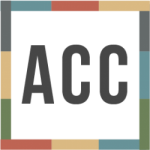Mission Statement
The Archaeological Research Facility's (ARF) mission to encourage, facilitate, and expedite field and laboratory research conducted by U.C. Berkeley archaeologists and related specialists engages students, scholars, and those in the public who are interested in the human past. As a field, archaeology is inherently interdisciplinary and collaborative. In addition to encouraging research collaborations among natural scientists, social scientists and/or humanities scholars, archaeology draws faculty who hold positions in a variety of departments, ranging from Classics to Earth and Planetary Science.
Read ARF's acknowledgement of the land upon which UC Berkeley sits on this webpage.
Who Keeps ARF Going?
Currently, 41 U.C. Berkeley faculty members from 11 departments and Organized Research Units are active participants in the Archaeological Research Facility (ARF), located at 2251 College Building on the U.C. Berkeley campus. As a hub for archaeology, ARF develops and provides resources like laboratory facilities, lecture series, and workshops that benefit scholars, students, and practitioners across campus. This minimizes duplication while expanding the requisite support—laboratory, equipment, and research funding—for an active, international discipline such as archaeology.
ARF's Director, Professor Kim Shelton, is a full-time faculty member dedicated to supporting archeological training and investigation to those in the field, and she receives no "release time" from teaching. Associate Director, Nico Tripcevich manages lab and field components of the facility while Program Director Sarah Kansa oversees lunch talks, events, and grant applications. Contract and Grants Assistant, Crystal Reiss provides essential grant and administrative support.
ARF is also governed by three committees: the Advisory Committee, which consists of at least five faculty members drawn from a variety of departments and units on campus; a 3-person Publications Committee that oversees regular book publications; and the Endowment Review Committees for both the Stahl and Braun endowments, which provide research funds to ARF associates and graduate students. ARF also has a forward-focused board called ARFutures, which plans and organizes off-campus public events that promote archaeology in the community.
The facility has recently experienced growth with scholars of international repute often attending regular sponsored lectures. An active public engagement program also leverages the knowledge and expertise of ARF's diverse community. Archaeologists from Berkeley and the wider University of California system have established new collaborative teaching and research relationships. The facility's five laboratories and collection of field equipment are up to date communal resources (including software licenses) that facilitate a wide range of materials research. With established guidelines and committees that oversee the administration of several endowments for archaeological research, the community at ARF is pleased to develop such an expanded repertoire of scholarship and research, given what is without question a "bare bones" budget. Please join the growing ARF community of over 1,000 members and receive updated information through our website and mailing list. If you are not yet a member, please subscribe here.
 |
The ARF is proud to be a member of the Archaeological Centers Coalition a group of academic institutions formed in response to urgent calls to address issues of diversity, inclusion, and systemic racism in the discipline. |
ARF's Four Areas of Scholarly Activity
- Facilitating scholarship and discovery with annual grants from two endowments for archaeological research, as well as the administration of external grant funds provides much needed resources to those in the field.
- Broadening access to archaeology by sponsoring events, including public lectures, school visits, collaborations with local museums, and participation in events such as Cal Day opens the field to greater audiences. These events, as well as any archaeology-related event elsewhere at U.C. Berkeley, are posted and cross-listed using the ARF Events website, which is hosted by the U.C. Berkeley Cal Events calendar system.
- Documenting and preserving research through a robust, open access publication series deepens the archeological conversation and offers essential communication with other scholars around the world. Explore all field and laboratory research reports generated from ARF-affiliated research at eScholarship.org (California Digital Library).
- Promoting archaeological science by providing laboratory space, state-of-the-art field and laboratory equipment, stores for soil, ecofact and artifact analysis, and training for the use of such facilities and equipment ensures a thriving archeological community. ARF houses six laboratories, including an archaeological chemical lab, an image lab, a computer lab, an XRF lab, a soils lab, and an organics lab.
What ARF Doesn't Do
- As an Organized Research Unit, ARF is not directly involved in the teaching or scheduling of classes. If you have questions about archaeology courses offered at U.C. Berkeley or about undergraduate and graduate programs involving archaeology, please contact the relevant departments (e.g., Anthropology or Middle Eastern Languages and Cultures).
- ARF does not appraise the value or authenticity of artifacts, so please do not call with questions about items. ARF encourages you to leave all suspected artifacts and other archaeological material where you find them (whether in your backyard, antique shop, or a foreign country) and to visit museums instead. If you are reaching out about interesting artifacts, ARF endorses the approach provided in this article "What should I do if I find a cool artifact in the US?"





